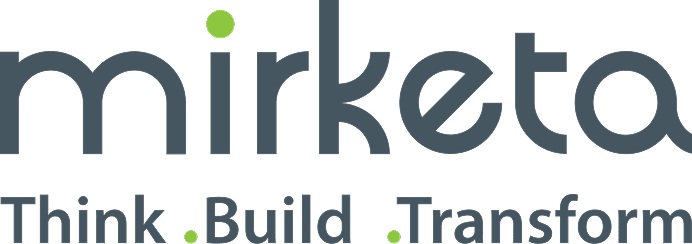Salesforce Data Security
Author
July 19, 2019
Security is a critical concern across all industries today, especially when it comes to protecting sensitive data. In an era where cyber threats are constantly evolving, implementing robust data security measures has become indispensable for businesses of every size. One of the most effective methods of safeguarding data is through authentication—requiring users to verify their identity via passwords, codes, or other data forms before gaining access to systems.
As organizations increasingly adopt cloud-based solutions like Salesforce, ensuring data security becomes even more critical. Salesforce provides a versatile and comprehensive data security model that not only protects sensitive information but also supports the unique needs of businesses. Salesforce consulting partners play a crucial role in helping organizations optimize these security settings to safeguard their data effectively.
Levels of Data Access in Salesforce
Salesforce offers a flexible data security framework that allows organizations to secure data at various levels. This is where Salesforce consulting services can help, ensuring that your Salesforce environment is configured to provide the highest level of protection. Whether you need assistance with Salesforce support services or Salesforce managed services, understanding Salesforce’s security model is essential.
Organization-Level Security
This is the most fundamental level of data protection within Salesforce. Organizations can control access by setting up approved user lists, enforcing strong password policies, and restricting logins to specific hours, locations, or IP ranges. Salesforce configuration services can assist businesses in tailoring these settings to their specific security requirements.
Object-Level Security
Object-level security in Salesforce controls access to specific data objects, ensuring that users can only view or manipulate records they are permitted to access. For instance, interviewers may be allowed to view job applications but not alter or delete them. By leveraging Salesforce admin services, organizations can effectively manage these permissions to align with their internal policies.
Field-Level Security
Sometimes, sensitive information within a record needs to be protected from certain users, even if they have access to the broader object. Field-level security allows organizations to restrict access to specific fields, such as hiding salary information from interviewers while making it visible to hiring managers. Salesforce custom application development can help tailor these settings to meet your organization’s unique needs.
Record-Level Security
Record-level security is vital for controlling access to individual records within Salesforce. Organizations can use several tools to define who can access specific records:
- Organization-Wide Sharing Settings: The foundation of Salesforce’s data security model, this setting determines the baseline level of access for each object. Salesforce consulting companies can help set up these configurations to ensure data is only accessible to those who need it.
- Role Hierarchy: Salesforce’s role hierarchy allows organizations to grant users access based on their role within the company. For example, managers can access all records that their subordinates can view. However, role hierarchies don’t necessarily have to align with the organizational chart. Salesforce partners can assist in designing custom role hierarchies that enhance security and data access control.
- Sharing Rules: These rules provide a way to make automatic exceptions to the organization-wide sharing settings. They are useful when specific groups need access to records they wouldn’t normally see. For instance, Salesforce Service Cloud implementation can leverage sharing rules to enhance customer service efficiency.
- Manual Sharing: When predefined roles and sharing rules aren’t enough, Salesforce offers manual sharing, allowing record owners to share individual records with other users. This flexibility is crucial for situations where unique access is required.
The Role of Salesforce Partners in Enhancing Data Security
While Salesforce provides robust tools for data security, organizations often need expert guidance to implement these features effectively. Salesforce consulting partners and Salesforce implementation companies play a critical role in configuring, managing, and optimizing data security settings. They offer a range of Salesforce support services, ensuring that your Salesforce environment remains secure, compliant, and aligned with industry best practices.
Additionally, businesses looking to migrate to Salesforce can benefit from Salesforce data migration services, which ensure that data is securely transferred without compromising integrity. Furthermore, Salesforce managed services can help maintain optimal security by regularly monitoring and updating security configurations.
Conclusion
In today’s digital landscape, safeguarding data is more than just a compliance requirement—it’s a business imperative. Salesforce’s comprehensive data security model, combined with the expertise of Salesforce consulting firms, provides organizations with the tools and strategies needed to protect their data from unauthorized access.
Whether you’re a growing business seeking Salesforce implementation partners in India or a large enterprise looking to optimize your Salesforce CRM consulting, ensuring robust data security should always be a top priority. By leveraging Salesforce’s flexible security settings, along with support from Salesforce partners, your organization can confidently protect its most valuable asset—its data.
Recent Posts
-
 Salesforce API Testing – The Modern QA Approach for Reliable Integrations05 Jan 2026 Blog
Salesforce API Testing – The Modern QA Approach for Reliable Integrations05 Jan 2026 Blog -
 Transforming SMB Sales with Salesforce Commerce Cloud12 Nov 2025 Blog
Transforming SMB Sales with Salesforce Commerce Cloud12 Nov 2025 Blog -
 Generative AI Testing tools03 Nov 2025 Blog
Generative AI Testing tools03 Nov 2025 Blog -
 Mirketa Unveils Next-Gen AI Solutions to Redefine the Future of Work Across Industries29 Jul 2025 Press Release
Mirketa Unveils Next-Gen AI Solutions to Redefine the Future of Work Across Industries29 Jul 2025 Press Release -
 Salesforce Implementation School Universities Higher Education23 Jul 2025 Blog
Salesforce Implementation School Universities Higher Education23 Jul 2025 Blog -
 Salesforce Health Cloud Implementation Partner: A Complete Guide23 Jul 2025 Blog
Salesforce Health Cloud Implementation Partner: A Complete Guide23 Jul 2025 Blog -
 XML Parsing: Using MINIDOM Vs Element Tree (etree) in Python02 Jul 2025 Blog
XML Parsing: Using MINIDOM Vs Element Tree (etree) in Python02 Jul 2025 Blog -
 A step by step Guide to create Salesforce web-to-lead form30 Jun 2025 Blog
A step by step Guide to create Salesforce web-to-lead form30 Jun 2025 Blog -
 How AI is Transforming User Experience Design in 202526 Jun 2025 Blog
How AI is Transforming User Experience Design in 202526 Jun 2025 Blog -
 How a Salesforce NPSP Consultant Can Elevate Nonprofit Impact25 Jun 2025 Blog
How a Salesforce NPSP Consultant Can Elevate Nonprofit Impact25 Jun 2025 Blog -
 Salesforce Load and Performance Testing: Essentials, Importance & Execution23 Jun 2025 Blog
Salesforce Load and Performance Testing: Essentials, Importance & Execution23 Jun 2025 Blog -
 Salesforce Website Integration Boost Leads, Automation & Customer Experience11 Jun 2025 Blog
Salesforce Website Integration Boost Leads, Automation & Customer Experience11 Jun 2025 Blog -
 Driving Results in Manufacturing with Salesforce Manufacturing Cloud11 Jun 2025 Blog
Driving Results in Manufacturing with Salesforce Manufacturing Cloud11 Jun 2025 Blog -
 Accelerating Growth with NetSuite SuiteCommerce02 Jun 2025 Blog
Accelerating Growth with NetSuite SuiteCommerce02 Jun 2025 Blog -
 Salesforce Service Cloud Services streamlining operations29 May 2025 Blog
Salesforce Service Cloud Services streamlining operations29 May 2025 Blog -
 AI for Nonprofits: Mirketa & Exec Precision Webinar27 May 2025 Press Release
AI for Nonprofits: Mirketa & Exec Precision Webinar27 May 2025 Press Release -
 AI for Nonprofits: Use Cases, Tools & Implementation Strategies20 May 2025 Webinar
AI for Nonprofits: Use Cases, Tools & Implementation Strategies20 May 2025 Webinar -
 Javascript Frameworks for Salesforce Lightning Design System18 May 2025 Blog
Javascript Frameworks for Salesforce Lightning Design System18 May 2025 Blog -
 Building a Smart Campus with Salesforce Student Information System: A Road to Smarter Education16 May 2025 Blog
Building a Smart Campus with Salesforce Student Information System: A Road to Smarter Education16 May 2025 Blog -
 Salesforce Nonprofit Cloud: Benefits & Consultant Role15 May 2025 Blog
Salesforce Nonprofit Cloud: Benefits & Consultant Role15 May 2025 Blog

























